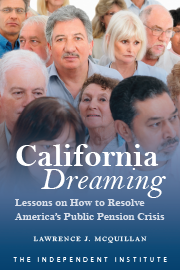On October 1, millions of Americans will begin enrolling in Obamacare. Health insurance exchanges will open, allowing qualified individuals to purchase health insurance using government subsidies. But Obamacare has already proved unworkable and its supporters are defecting, with good reason.
The health care overhaul law has undergone more than 20 delays and revisions, including exemptions for politically connected corporations. In July, President Obama delayed by one year the “employer mandate” that requires companies with at least 50 employees to provide affordable health insurance to workers or pay penalties. Obama blamed the delay on the massive reporting requirements it imposes on businesses.
Then in August, the 60,000-member International Longshore and Warehouse Union announced it was leaving the AFL-CIO due in part to the labor federation’s support of Obamacare. One union official said the law will have a “devastating impact” if it goes forward because it will tax so-called “Cadillac” health plans that many union members enjoy.
The ILWU disaffiliation forced the AFL-CIO to vote on changes to Obamacare at its national convention in Los Angeles last week. The federation approved a strongly worded resolution saying Obamacare will drive up the costs of union health insurance to the point that employers will stop offering insurance.
Unions had been among the most enthusiastic supporters of Obamacare and now the president’s longtime supporters are abandoning ship. Famed investor Warren Buffett, for example, said: “We need something else. . . . I mean, the American public is not behind this bill.” Buffett’s biggest concern is that the law will drive up health care costs even higher.
As defections grow, lawmakers in Congress are debating a continuing resolution to fund the federal government beyond September 30. Senator Mike Lee (R-UT) said he has recruited more than a dozen Senate Republicans willing to block any resolution, and shut down the government, if it includes funding to further implement Obamacare.
“This is the last opportunity we’re going to have to stop Obamacare before the January 1 deadline, so we have to refuse to fund it now,” Lee said.
In the House, a growing number of Obamacare opponents are rallying behind a bill from Rep. Tom Graves (R-GA) that would tie funding for the government to a one-year delay in Obamacare.
As October 1 looms, opposition is growing because Obamacare is now reality rather than a political fight. Americans are learning what’s in the poorly drafted 2,572-page law and seeing it as an unworkable monstrosity.
The employer mandate, postponed only recently, has encouraged employers to not hire full-time workers in order to not exceed the 50-employee trigger. The mandate will create a nation of part-time workers, and in the words of Teamsters President James P. Hoffa “destroy the foundation of the 40-hour work week that is the backbone of the American middle class.” Low-income families will be especially hurt when employers cut work hours to avoid the trigger.
The “individual mandate” will force at least 18 million people to purchase private health insurance or pay a penalty. These newly insured, studies show, will spend up to 30 percent more on health care than they did before, driving up costs. And it gets worse.
Expanding health insurance coverage to so many people so quickly will reduce access to care for many low-income people because nothing in the law increases the number of doctors, nurses, clinics, or hospitals. Waiting times will soar and studies show many people give up and don’t get the care they require when “rationing–by–waiting” becomes more burdensome.
It’s time to defund Obamacare and propose a long-overdue sensible alternative. Then repeal Obamacare in 2017 and pass the alternative. As argued in the book, Priceless, by John C. Goodman, an alternative should provide uniform refundable tax credits to empower all individuals to purchase portable health insurance, which would largely solve the pre-existing conditions problem. And eliminate the unfairness in the tax code that favors employer-provided insurance.
Preventive and diagnostic care should be largely paid out of pocket using Health Savings Accounts to encourage price and quality competition among providers and innovative approaches to serve customers. These changes would begin to lower costs while maintaining high-quality care.









